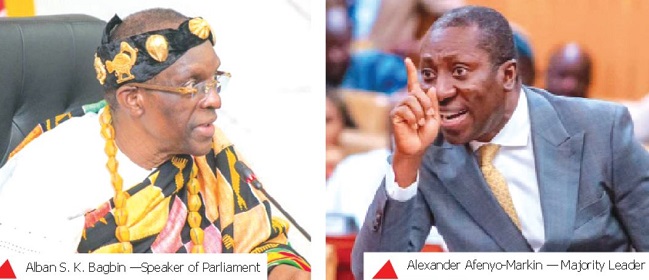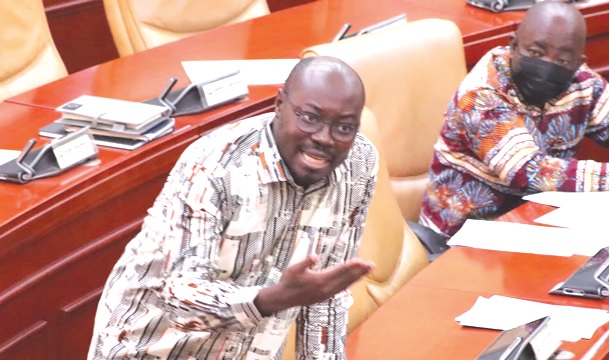
Parliamentary Politics — Lessons from the 8th Parliament
IN 2008, after the first round, the National Democratic Congress (NDC) won the parliamentary elections. The presidential contest needed a run-off.
I recall wishing for a divided government- New Patriotic Party (NPP) controlling the executive and NDC, the legislature.
My reasons were simple. Far too often, conversations about parliament typically lead to two general conclusions. First, it is weak because the constitution intentionally designed a strong executive. Second, when both parliament and the executive are controlled by the same party, the former (already perceived as weak) is unable to exercise proper oversight of the latter.
The second round was an opportunity for Ghanaians to vote for a split government and reap the benefits of a strong parliament exercising much-needed executive oversight.
That did not happen, but the 2020 election gave us something close. Parliament was evenly split between NDC and NPP (137-137) with one independent who was permitted to caucus with the NPP thus giving them a one-vote majority.
Also remember, for the first time in the history of our democratic politics, parliament elected a speaker who was a long-standing member of the NDC and essentially from the minority side of the house.

Honestly, I did look forward to a different parliament where the conventional wisdom of “the minority will have its say, but the majority will have its way” no longer held true. In addition, I hoped for a parliament where consensus-building drove all matters before the house. This is notwithstanding all that was on display during the election of the speaker on January 6, 2021.
The life of the 8th parliament will soon be over. After observing all that has happened during these four years, here are three lessons it has taught me.
Lessons from 8th Parliament MPs
Bipartisan cooperation is a conscious choice. One of the significant things the 8th parliament did, but has largely gone unnoticed, is the changes made to its standing orders. As part of the changes, the house agreed that the appointments and newly created budget committees be chaired by the minority.
When one thinks of the role of these committees, this is sweeping and gives the minority a more significant say on matters such as presidential appointments and fiscal policy. But how was this possible in such a closely divided parliament?
Simple - the bipartisan group that worked on the revisions with the eventual approval by the full house managed to overlook their partisan differences. In my estimation strengthening parliament was more important than partisan differences. Our MPs can forge bipartisan cooperation if they want to.
The unanswered question is why are they unable to in certain critical moments?
Sharpened partisan edges. In as much as bipartisan cooperation is possible, the 8th Parliament reflects our deepening polarisation and more sharpened partisan edges.
Over the four years, there had been notable instances of raw partisanship on matters such as the censorship hearings of the former finance minister, passage of the E-Levy bill, voting down and later overturning of the FY 2022 budget, and most recently the disagreement over the declaration of four seats in parliament by the Speaker as having been vacated.
In each of these instances, the partisan temperaments exhibited and the accompanying rhetoric made me wonder whether there was no reservoir of goodwill left in an institution where members regularly refer to each other as “my good friend” or “my good brother/sister.”
Perils of divided government
I now have second thoughts about my 2008 desire for a divided government which is not to say that a strong parliament and improved executive oversight are no longer important.
The question is, at what cost? As the life of the 8th parliament draws to a close, and elections fast approach, it takes no stretch of the imagination to say none of the presidential candidates would want the composition of the 9th parliament to look anything like the 8th, let alone be controlled by its political opponents should they win.
Gridlock and more partisan acrimony will be the country’s portion, in my opinion, should there be a divided government or a 9th parliament that looks like the 8th.
The role of the courts
Drawing in the courts to settle disagreements emerging in parliament I fear, in the long term, will weaken parliament depending on how the courts resolve them.
Of course, if parliamentary actions offend the constitution, it is only appropriate for the courts to intervene. However, there must be a balance between seeking the court’s intervention and resolving matters internally to perverse the independence of parliament and strengthen the assertion that it is “master of its own rules”.
Where do we go from here? The 2024 elections and life in the 9th parliament will tell. I sincerely hope all goodwill is not lost.
The writer is the Project Director, Democracy Project.
